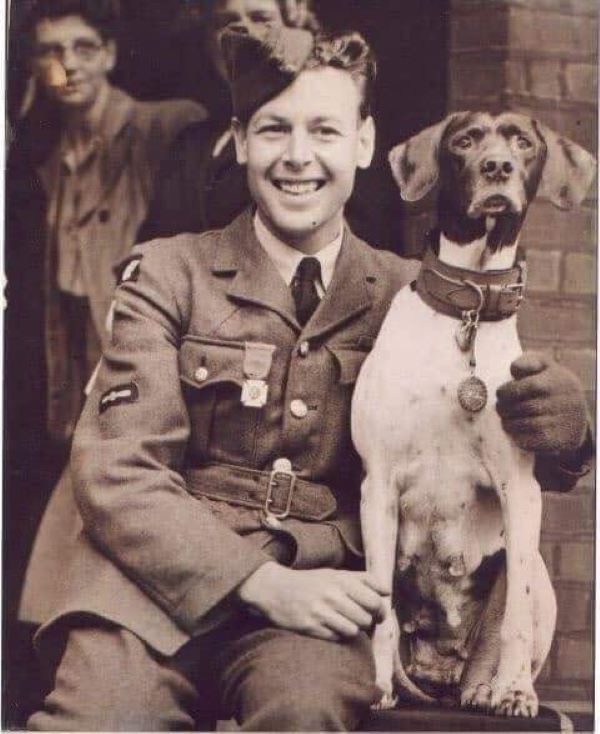A million such stories have been written from time to time, but this one is extraordinary. Touching, and almost unbelievable to read, this “drama” of Frank and Judy HAS to be read however, for everyone to realize how important this “connection” between a man/woman and their pet animals (especially dogs), should be. Show a dog true love folks, and he or she will gladly give their lives for you.
Way back when, as a young boy, I did read about another Alsatian male who was shot and killed by his owner who thought his dog had gone into the nursery at home, where his baby was sleeping, to harm the child, only to realize, too late, that a Cobra-Snake had found it’s way into the same nursery, and Rover was sitting by the baby’s cot, teeth bared, and growling, simply telling the reptile not to even get close to the infant. Rover had died to save this baby only because this little bundle of a human was a part of his family, as he saw it. The Cobra also met it’s doom, that day, but Rover’s master undoubtedly suffered the biggest heartbreak when he realised what he had done. I have never forgotten this story, and I hope that everyone who reads this amazing post about Frank and Judy will pass it on, in the hope that while the love of animals could so easily make this World a better place to live in, the love & care of DOGS easily take first place, simply cos they are “MAN’S BEST FRIEND”.

Desmond Kelly.
(Editor-in-Chief) eLanka.

Source: facebook.com
Judy, a purebred pointer, was the mascot of several ships in the Pacific, and was captured by the Japanese in 1942 and taken to a prison camp. There she met Aircraftsman Frank Williams, who shared his small portion of rice with her.
Judy raised morale in the POW camp, and also barked when poisonous snakes, crocodiles or even tigers approached the prisoners. When the prisoners were shipped back to Singapore, she was smuggled out in a rice sack, never whimpering or betraying her presence to the guards.
The next day, that ship was torpedoed. Williams pushed Judy out of a porthole in an attempt to save her life, even though there was a 15-foot drop to the sea. He made his own escape from the ship, but was then recaptured and sent to a new POW camp.
He didn’t know if Judy had survived, but soon he began hearing stories about a dog helping drowning men reach pieces of debris after the shipwreck. And when Williams arrived at the new camp, he said: “I couldn’t believe my eyes! As I walked through the gate, a scraggly dog hit me square between the shoulders and knocked me over. I’d never been so glad to see the old girl!”
They spent a year together at that camp in Sumatra. “Judy saved my life in so many ways,” said Williams. “But the greatest of all was giving me a reason to live. All I had to do was look into those weary, bloodshot eyes and ask myself: ‘What would happen to her if I died?’ I had to keep going.”
Once hostilities ceased, Judy was then smuggled aboard a troopship heading back to Liverpool. In England, she was awarded the Dickin Medal (the “Victoria Cross” for animals) in May 1946. Her citation reads: “For magnificent courage and endurance in Japanese prison camps, which helped to maintain morale among her fellow prisoners, and also for saving many lives through her intelligence and watchfulness”.
At the same time, Frank Williams was awarded the PDSA’s White Cross of St. Giles for his devotion to Judy. Frank and Judy spent a year after the war visiting the relatives of English POWs who had not survived, and Frank said that Judy “always provided a comforting presence to the families.”
When Judy finally died at the age of 13, Frank spent two months building a granite and marble memorial in her memory, which included a plaque describing her life story.






